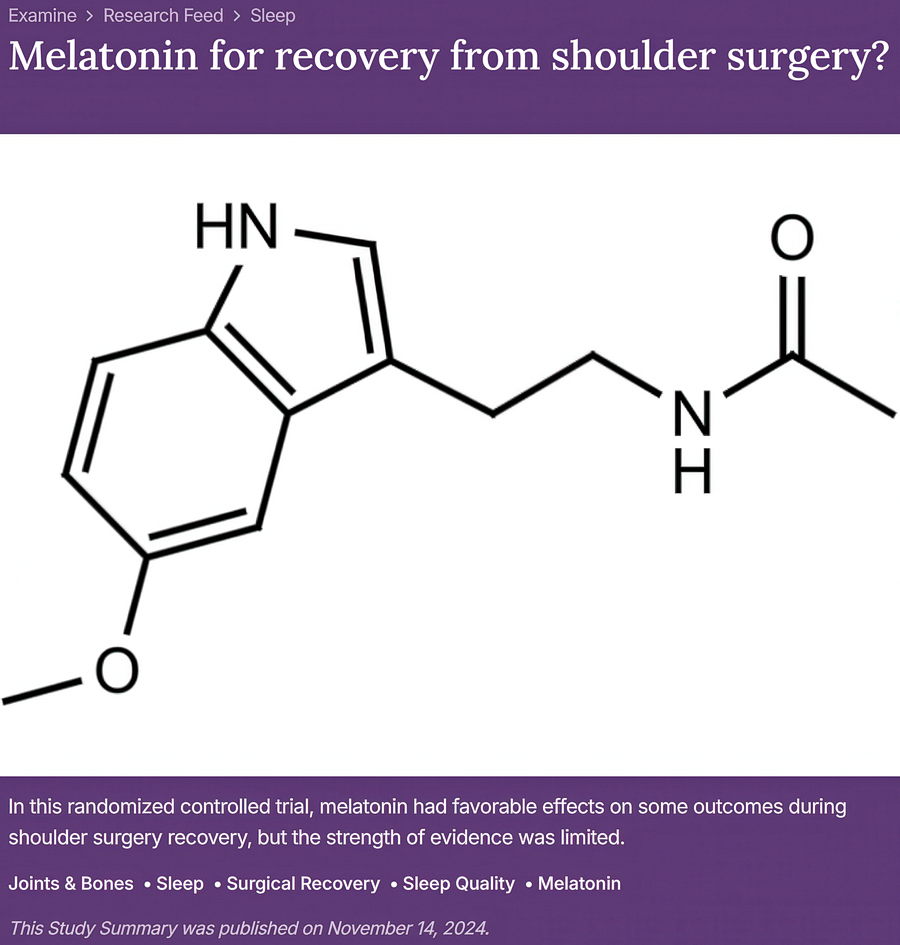Yes, that was a mouthful for a headline, but it should hopefully grab the attention of anyone in need of better recovery, especially after an injury or a surgical procedure. Also, it kind of summarizes this article. But before we get ahead of ourselves, let’s look at a study that the website Examine recently summarized for us. And as usual, the researchers, nor the crew at Examine, understands the mechanics behind the findings, and that is where yours truly will fill in the blanks with my 30+ years of experience within these fields.
Quick Summary
“In this randomized controlled trial, melatonin had favorable effects on some outcomes during shoulder surgery recovery, but the strength of evidence was limited.”
Yes, of course it was. Melatonin is a “sleep-inducing” hormone primarily synthesized and secreted in the pineal gland of the brain. The production increases during the evening and peaks around midnight, as we are supposed to go to sleep around 9 p.m. and absolutely no later than 10:00 p.m.
However, melatonin production can be disturbed by blue light, as in the light from screens; be it a TV, a tablet, a smartphone, or a computer screen. Also, to get the best sleep quality and recovery, you need to be in a fasted state when you go to sleep. That means that your last meal has to be at least 3 to 6 hours before you go to bed (depending on its size and composition.) If you eat closer to your sleep than that, or if you snack on something during the evening, your first half and most important part of your sleep will be compromised.


So, depending on the test subjects and their lifestyle, results will of course vary unless everyone would get strict sleeping hygiene rules such as no blue light after 7:00 p.m. and no eating after 5:00 p.m. (which would be ideal for most people.)

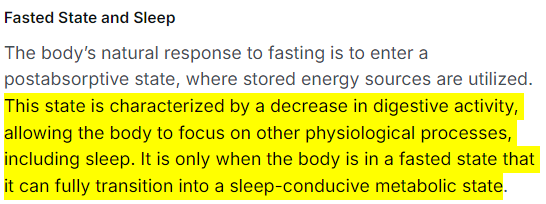

What was studied?
“The effects of melatonin on sleep quality and shoulder function after arthroscopic rotator cuff surgery.
The primary outcome was sleep quality, assessed using the Pittsburgh Sleep Quality Index (PSQI).
Shoulder limitations and pain were assessed using the American Shoulder and Elbow Surgeons Standardized Shoulder Assessment Form (ASES). The Single Assessment Numeric Evaluation (SANE), which prompts the participants to rate their current level of function as a percentage of normal, was also completed.”
Yes, sleep quality is crucial for healing, detoxification, and thus for recovery. And the most crucial part of sleep is the hours between 10.00 p.m. and 2:00 a.m., as this is when our natural growth hormone levels peak (but only if you are asleep and in a fasted state!)

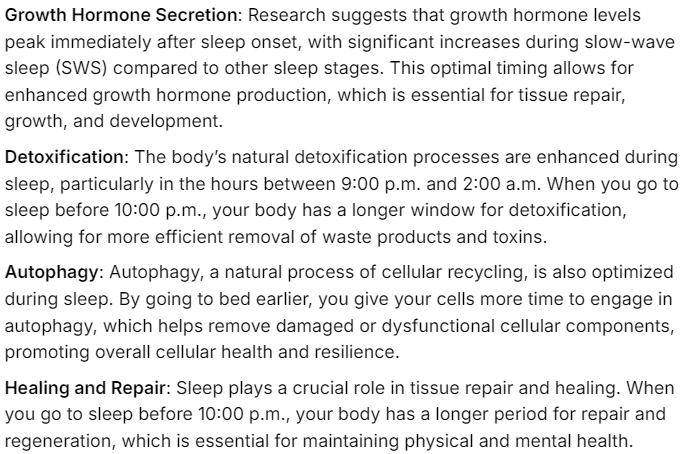

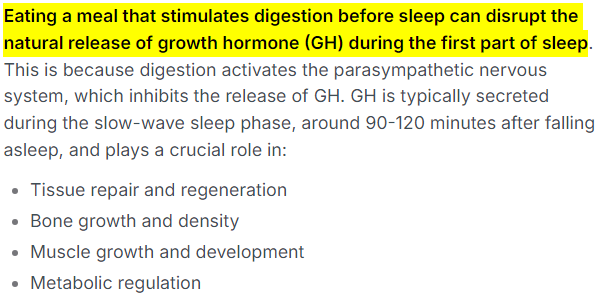

While melatonin will make you sleep “deeper” and better, any of the interference that I mentioned earlier, as in eating late or being exposed to blue light, will still decrease sleep quality, even when taking melatonin as a supplement.
Remember, eating something that requires digestion interferes with both sleep and growth hormone secretion, and especially if you consume some carbohydrates that elevates blood glucose above natural levels and your body has to produce and release a lot of insulin (as insulin suppresses the release of growth hormone.)
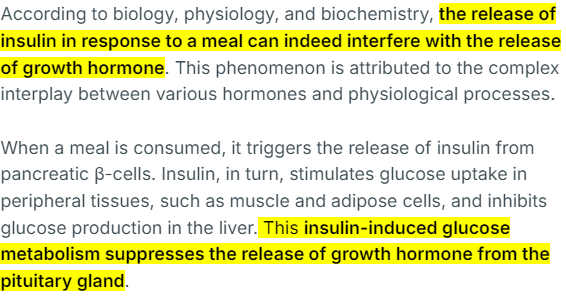
Thus, if you take high doses of melatonin before sleep and are in a fasted state, and you have blocked all blue light the hours before sleeping, you will get some really good quality sleep, especially during the first crucial hours. And yes, that means that your natural release of growth hormone will be optimal, as in much higher than what you ever experienced before. And growth hormone is crucial for the healing process, as in recovering from injuries or surgery.
With that said, if you take melatonin but have had a large meal close to your bedtime while being exposed to blue light until you hit the pillow, the extra melatonin will not have such a great impact, and due to the digestion taking place, growth hormone release will mostly be blocked anyway — especially if you consume toxic carbohydrates, as the insulin release blocks growth hormone. And that’s why “the strength of evidence was limited” according to the researchers, as they did not take the diet and blue light habits of the participants into consideration.
Who was studied?
“80 adults (average age of 61; 57 men and 23 women; average BMI of 29) in the United States who were undergoing arthroscopic rotator cuff surgery.”
Such high BMI tells me that they have very bad eating and lifestyle habits. So, likely, most of them snack during the evening/night.
How was it studied?
“During this 6-week randomized controlled trial, all of the participants received standard sleep hygiene instructions (getting at least 6 hours of sleep per night and avoiding caffeine or naps in the evening). The intervention group additionally received 5 mg melatonin tablets, to be taken 1 hour before bed for 6 weeks.
Assessments were conducted at baseline, 2 weeks, and 6 weeks (end of intervention), with follow-up assessments at 3 months, 4 months, and 6 months after surgery.”
Yeah, simply avoiding naps and caffeine is not enough, as we have established. Late meals and blue light are more important factors considering sleep quality and especially growth hormone release. And 6 hours of sleep is ok if it’s quality sleep. I would still opt for 7 hours though.
Also, 5 mg of melatonin is a very small dose. For really great results on the quality of sleep, you need between 30 to 50 mg. Some “experts” even advocate 200 mg, but that’s probably because they eat close to going to sleep, and taking so much could interfere with digestion and it could also be toxic if not cycled. Even on lower dosages, you should only use melatonin when needed, and not every single day for weeks or months. If recovering from an injury or surgery, take it five days a week until healed.

What were the results?
“Although sleep quality was better in the melatonin group at 6 weeks, the difference between groups (1.38 points) was not clinically meaningful.[1] In addition, a statistically significant trend (p-value = 0.055) towards better sleep quality was observed prior to surgery in the melatonin group (a difference of 1.11 points between groups). It’s also worth noting that function ratings at 6 weeks (end of supplementation) favored the control group.”
Again, 5 mg of supplemental melatonin is a very low dose and will only have a small impact on sleep quality. And again, I bet that the majority of the participants had a late meal or snack and also exposed themselves to blue light through watching TV or using a smartphone or tablet. And as the results are presented as an average value between all participants, those who did this lowered the average.
“The participants in the melatonin group reported less shoulder limitations and pain (higher ASES scores) at the 4 and 6 month follow-up assessments, compared to the participants in the control group.
The melatonin group reported better function (higher SANE ratings) at 6 months, with ratings of 89% in the melatonin group and 78% in the control group.”
Again, we would have seen a more clear difference between the melatonin group and the control group if both groups had received diet and sleep hygiene instructions. That is simply pure basic biology and physiology.
Anything else I need to know?
“Some caution is appropriate when interpreting these findings due to the lack of a placebo intervention.
This Study Summary was published on November 14, 2024.”
True. However, we know through biology, physiology, and especially biochemistry how melatonin works. We also understand sleep cycles and we know that the release of growth hormone peaks at around 22:00 p.m. to 2:00 a.m., provided that you are asleep during these critical hours. And we know that growth hormone is crucial to tissue repair and maintenance, as in healing and recovering from an injury or surgery.

So, logic dictates that by optimizing your sleep hygiene, as in making sure you sleep in a fasted state and fall asleep before 22:00 p.m. will maximize your natural abilities to recover. And by using melatonin, we can push this a bit further. And if you don’t care about gray areas, you could throw in a growth hormone secretagogue such as Ibutamoren (MK-677,) which stimulates your natural production of growth hormone ranging from 40% to 97% above baseline levels. In other words, it will not decrease or shut down your natural production like taking hormones would — it simply stimulates the pituitary gland to produce more GH than it naturally would. One oral dose (10 to 25 mg) can strengthen the pulsations of GH release from the pituitary gland for up to 24 hours, with the strongest effect lasting 6 to 8 hours, which makes it ideal to take in the evening just before going to bed, as it starts to work within 30 to 40 minutes.
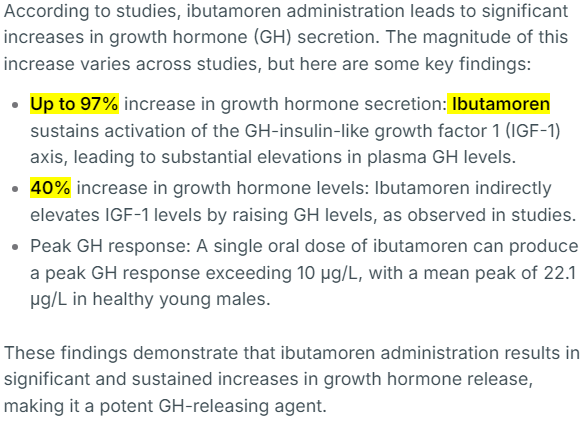
And as a note, Ibutamoren should also be cycled, 5 days on, 2 days off for maximum benefits — or the body will adapt by reducing its sensitivity and thus stimulus to the pituitary gland.
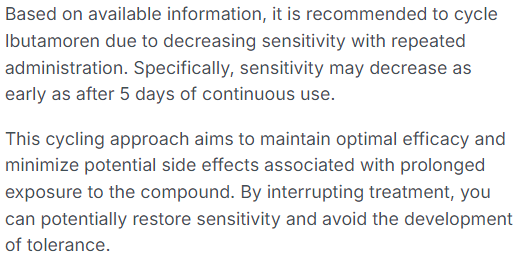
As for nutrition, an animal-based diet high in red meat is crucial for tissue healing and recovery. It’s the big secret to muscle gains among bodybuilders for a reason, as it has the same nutrient profile as our own cells with all the key amino acids in the right amounts and balance.
And that was it for this review. If you need more help with injuries or post-surgery recovery, I’m available for consultations.
If you need help with any kind of health problems or transitioning from your current way of eating to our natural species-appropriate, species-specific way of eating, I’m available for both coaching and consultation.
Coaching and Consultation
And if you found the article and my insights helpful and enjoy my daily free information, please consider donating to help pay the webhosting bills and keep the site running. And if you’re interested in discussing and sharing information with likeminded people, consider joining our uncensored community at Ungovernable.se. Thank you!

